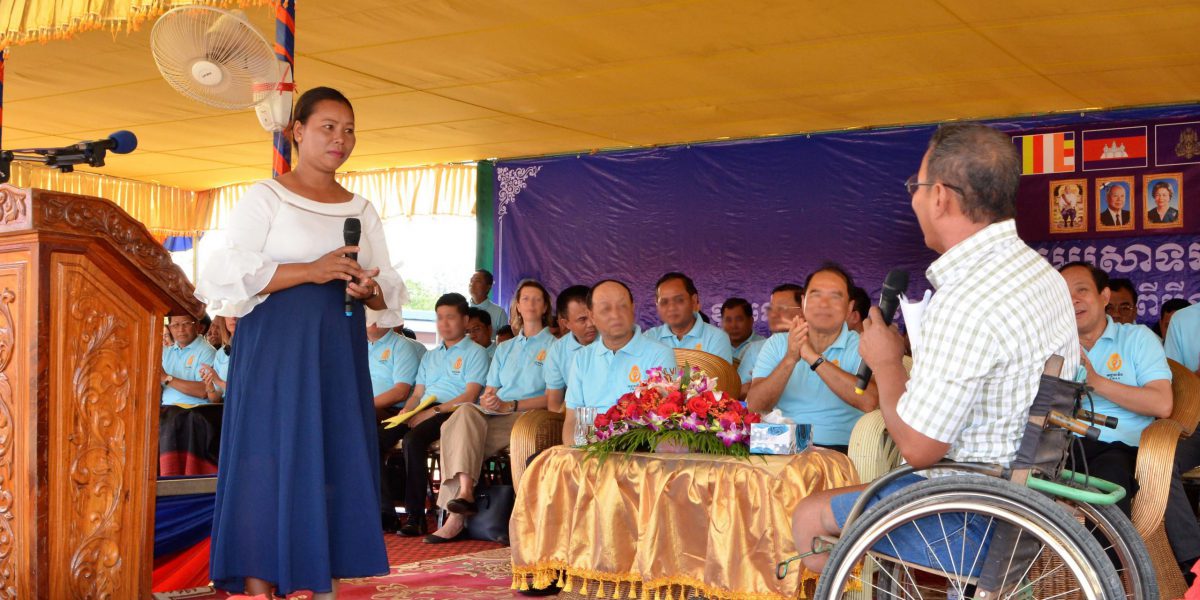Cambodia: 20 years’ Celebration of the Mine Ban Treaty
04 April 2019

Siem Reap, 4th April 2019 – On February 22, 2019, a woman named Ou Phanna journeyed to Kamrieng, a remote area in Cambodia, to speak at a rally that marked the 20th anniversary of the Mine Ban Treaty. Phanna is a survivor of a landmine explosion.
More than a thousand people attended the event. Tun Channareth, the recipient of the Nobel Peace Prize in 1997, interviewed Phanna on stage in front of a large audience.
Phanna was born in Preah Vihear, a rural province in Cambodia bordering Thailand. Her family was very poor. When she was 10 years old, her mother died and her father passed away a few years later. After she became an orphan, Phanna went to live with her brother. One day, while picking mushrooms in the forest, she stepped on a landmine. Her leg was severely injured. She was sent to the hospital in Sisaket, Thailand where she stayed for 3 months after her leg was amputee. She was afraid and in pain.
When Phanna returned home, her brother’s family refused to allow her to stay with them. She moved in with her aunt. In 2005, she learned to make sculptures from stone in the city of Kampong Thom, Cambodia, from an old sculptor with support from a Canadian Organization. She also received an artificial leg for free from the Kien Kleang Center, a National Rehabilitation Centre in Phnom Penh.
Phanna told the audience that the Secretary General of the U.N, Antonio Guterres has warned that the world’s arms control architecture is collapsing. We need to stop making more weapons that kill! She also singled out the young people in the audience for a special message. “Do not to go into mined areas, nor touch or play with land mines or any explosive remnants of war (ERW). Watch out for mine signs! “
She had a message of support for the deminers.
“I’m very proud of you. You are our heroes. Please continue to clear all mines and ERW.”
To countries that use and to corporations that produce mines and cluster munitions, she said, “Please stop! These weapons are barriers to economic and human development. Many people who know the pain caused by them are asking you to promote peace not war.”
At the rally, there was also an information fair. The JRS/CCBL, mine clearers, peacekeepers and representatives of the Cambodian government had booths where they presented their perspectives on the Mine Ban. Two exhibits in the JRS/CCBL display were especially popular. One was a chart that showed the countries that are signatories to disarmament treaties. The other was a weaving produced in 1995 by the women of a mined community in Banteay Meanchey, Cambodia. The weaving is a call for the mine clearance of the community’s land and a ban on land mines.
Phanna now lives with her two children and husband in Siem Reap, where they are sculptors. She and her husband earn their living by selling their art. In the sculpture shop built by the Jesuit Refugee Service (JRS), they teach other sculptors and provide sanctuary to people who need help. JRS also supports the sculptors by selling their work. Phanna and her husband have been able to educate their children as a result.


